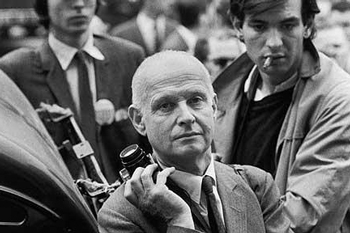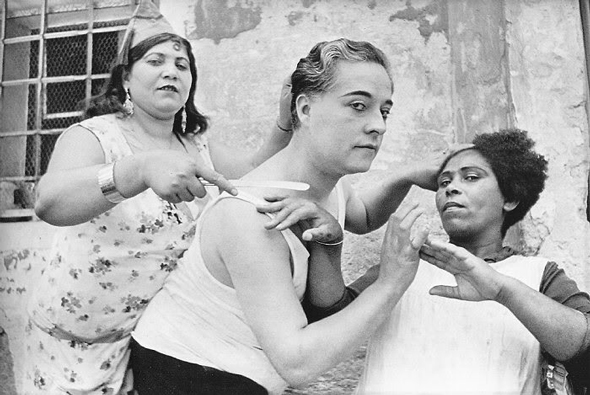It is no coincidence that Henri Cartier-Bresson preferred a 50mm lens on his Leica 35mm rangefinder camera. His special ability was to use a 50mm lens but allow the photo to “breathe” almost as if shot with a 35mm. HCB just seemed to know how to frame so that it looks wider than it should.
A lot has been written ever since why HCB mostly used a 50mm lens. Well, it produces a true 50mm field of view, delivering an image similar to a scene as seen by the human eye and with minimum distortion.

Yet, for many photographers who appreciate the quality of a standard prime lens have abandoned the 50mm (on a full-frame sensor) and prefer the wider 35mm for their everyday standard shots. Some even say the Leica is designed for 35mm.
A 35mm focal length lens will provide a wider field of view and the scene is further back from the lens. Personally, I’m a 28mm guy. Good glass shows no distortion at 28mm and the wideness of the frame enables to capture and tell a “wider” story than a 50mm that shows about half the 28mm’s field of view. HCB shot many known examples with other focal lengths, but always gravitated towards the 50mm focal length.
HCB is HCB not because of his preference for 50mm, but because of his eye and skill as a photographer. Don’t just shoot 50mm because he did. Not everyone visualizes the world in the same way. You’d be forcing it. Winogrand shot with 28mm and sometimes 35mm. Find the focal length that speaks to you. And BTW, how was HCB shooting his 50mm? He didn’t have his camera hanging round his neck most of the time. It is hidden, in his right hand, until he sees the shot. If you go round with a camera people don’t see they will behave different.

So, a 50mm is not in everyone’s hand the same 50mm. For HCB, the 50mm was simple, discreet and easy to carry, giving him everything he wanted and needed. HCB never made any bones about the fact that the intricacies of photography equipment just didn’t much interest him. It’s all about a camera and lens that he could operate blindly.
In his own words, from a recently discovered interview:
I am completely and have always been uninterested in the photographic process. I like the smallest camera possible, not those huge reflex cameras with all sorts of gadgets. When I am working, I have an M3 because it’s quicker when I’m concentrating (…) If you have little equipment, people don’t notice you. You don’t come like a show-off. It seems like an embarrassment, someone who comes with big equipment.
And why the 50mm lens?
It corresponds to a certain vision and at the same time has enough depth of focus, a thing you don’t have in longer lenses. I worked with a 90. It cuts much of the foreground if you take a landscape, but if people are running at you, there is no depth of focus. The 35 is splendid when needed, but extremely difficult to use if you want precision in composition. There are too many elements, and something is always in the wrong place. It is a beautiful lens at times when needed by what you see. But very often it is used by people who want to shout. Because you have a distortion, you have somebody in the foreground and it gives an effect. But I don’t like effects. There is something aggressive, and I don’t like that. Because when you shout, it is usually because you are short of arguments.
HCB doesn’t fancy gimmicks. No effects, no distortion, just plain natural rendition.
Same goes for distracting electronics. Why would he need a photometer:
And photo electric cells in a camera — I don’t see why it is done. It is a laziness. During the day, I don’t need a light meter. It is only when light changes very quickly at dusk or when I’m in another country, in the desert or in the snow. But I guess first, and then I check. It is good training.
So, to 50mm or not? HCB’s photography is all about unobtrusiveness. The 50mm matched his style and what he wanted. No one operates the 50mm like he did. And no one operates a 50mm like you do. It’s all up to the photographer what a 50mm is. There is no bad 50mm lens. There are just bad photographers.
Good photography has nothing to do with brand or focal length or price. Train yourself to be a better photographer. Stick to one lens. Get to know your lens. You’ll find your own “50mm.” Mine’s the 28.


